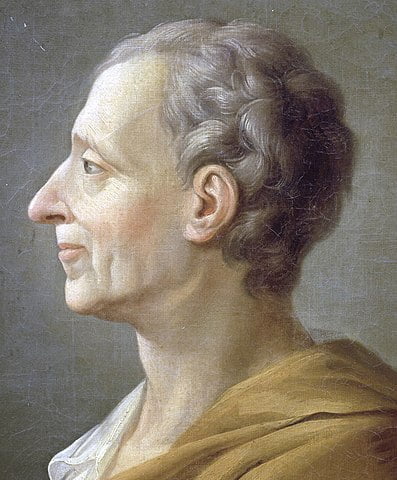Charles-Louis de Secondat, Baron de La Brède et de Montesquieu, was an influential French philosopher who lived during the Age of Enlightenment. Among his famous works was “The Spirit of Laws,” which revolutionized the thinking of European intellectuals. However, his journey to India in 1729 was a transformative experience that had a significant impact on his philosophy. In particular, his encounter with Hindu philosophy left a powerful impression on him, and it influenced his approach to political science and social theory.
Montesquieu’s Journey to India
Montesquieu’s trip to India was unconventional for a European traveler of his time. Most of his contemporaries went to India for trade, colonialism, or missionary work. However, Montesquieu was not interested in any of these pursuits. Instead, he was driven by his intellectual curiosity and his desire to study Indian culture and philosophy. He spent several months traveling across India, visiting different regions, observing local customs, and meeting with scholars and philosophers.
Montesquieu’s Fascination with Hindu Philosophy
During his travels, Montesquieu encountered the rich and diverse traditions of Hindu philosophy. He was particularly drawn to the teachings of Vedanta, which emphasizes the unity of all things and the transcendent nature of consciousness. He was also intrigued by the concept of karma, which posits that our actions have consequences that determine our future lives. Montesquieu saw in these ideas a profound understanding of human nature and society that challenged the prevailing European views of the time.
Montesquieu’s encounter with Hindu philosophy had a significant impact on his thinking. He began to see society in a more complex and holistic way, and he became more skeptical of the simplistic models of European social theory. He also developed a deeper appreciation for the diversity of human cultures and beliefs, which he saw as a source of strength rather than a threat. Overall, his journey to India was a transformative experience that enriched his intellectual life and broadened his understanding of the world.
Montesquieu’s encounter with Hindu philosophy was a pivotal moment in his life and career. It challenged his assumptions, broadened his horizons, and inspired him to develop a more nuanced and holistic approach to social theory. His trip to India was a testament to the power of intellectual curiosity and the importance of cross-cultural dialogue. Today, Montesquieu’s legacy continues to inspire scholars and thinkers around the world to explore new ideas and challenge conventional wisdom.

